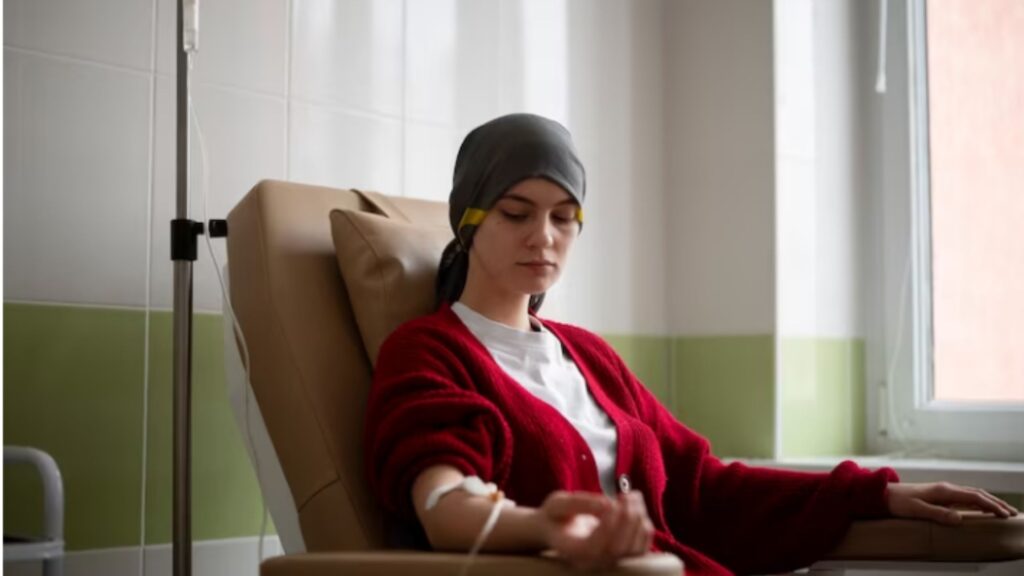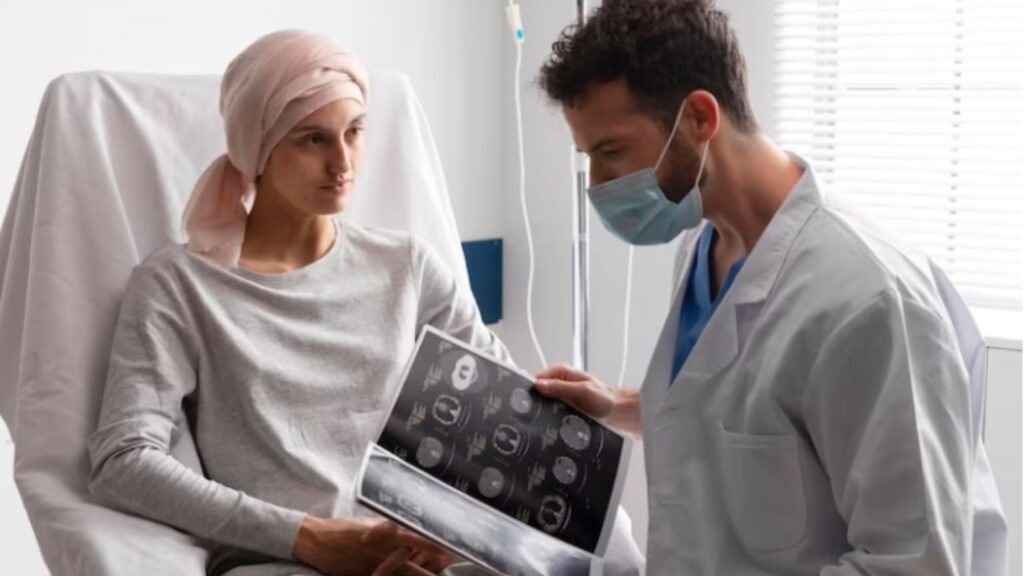Cancer is a term used to describe a group of diseases characterized by the uncontrolled growth and spread of abnormal cells in the body. Cancer can develop in any part of the body and can be life-threatening if not detected and treated early. In this article, we will discuss the symptoms, diagnosis, and treatment options for cancer.
Symptoms of Cancer:

The symptoms of cancer can vary depending on the type and stage of the cancer. Some of the most common symptoms of cancer include:
- Fatigue: Feeling tired all the time, even after getting enough rest, can be a sign of cancer.
- Unexplained weight loss: Losing weight without trying can be a sign of cancer, especially if it is a significant amount.
- Pain: Pain that doesn’t go away, especially if it’s associated with a lump or a mass, can be a sign of cancer.
- Skin changes: Changes in the skin, such as darkening, yellowing, or redness, can be a sign of cancer.
- Changes in bowel or bladder habits: Blood in the urine or stool, changes in bowel habits, or incontinence can be a sign of cancer.
- Persistent cough: A cough that lasts for more than a few weeks can be a sign of lung cancer.
- Difficulty swallowing: Difficulty swallowing, especially if it’s accompanied by pain, can be a sign of throat or esophageal cancer.
- Fever: A fever that doesn’t go away can be a sign of cancer, especially if it’s associated with other symptoms.
Diagnosis of Cancer:

If you experience any of the above symptoms, it’s important to see a doctor right away. Your doctor may perform a series of tests to determine if you have cancer, including:
- Blood tests: Blood tests can help detect certain types of cancer by looking for specific proteins or markers in the blood.
- Imaging tests: Imaging tests such as X-rays, CT scans, MRIs, and PET scans can help detect tumors and other abnormalities in the body.
- Biopsy: A biopsy involves taking a sample of tissue from the affected area and examining it under a microscope to determine if it is cancerous.
- Endoscopy: An endoscopy involves inserting a thin, flexible tube with a camera on the end into the body to examine the inside of organs and tissues.
- Genetic testing: Genetic testing can help determine if you have an inherited risk for certain types of cancer.
Treatment Options for Cancer:

The treatment options for cancer depend on the type and stage of the cancer. Some of the most common treatment options for cancer include:
- Surgery: Surgery is often the first line of treatment for cancer and involves removing the tumor and surrounding tissue.
- Radiation therapy: Radiation therapy uses high-energy radiation to kill cancer cells and shrink tumors.
- Chemotherapy: Chemotherapy uses drugs to kill cancer cells throughout the body.
- Immunotherapy: Immunotherapy uses the body’s immune system to fight cancer by stimulating the immune system to attack cancer cells.
- Targeted therapy: Targeted therapy uses drugs that target specific molecules or pathways that are involved in the growth and spread of cancer cells.
- Hormone therapy: Hormone therapy is used to treat certain types of cancer that are hormone-sensitive, such as breast









